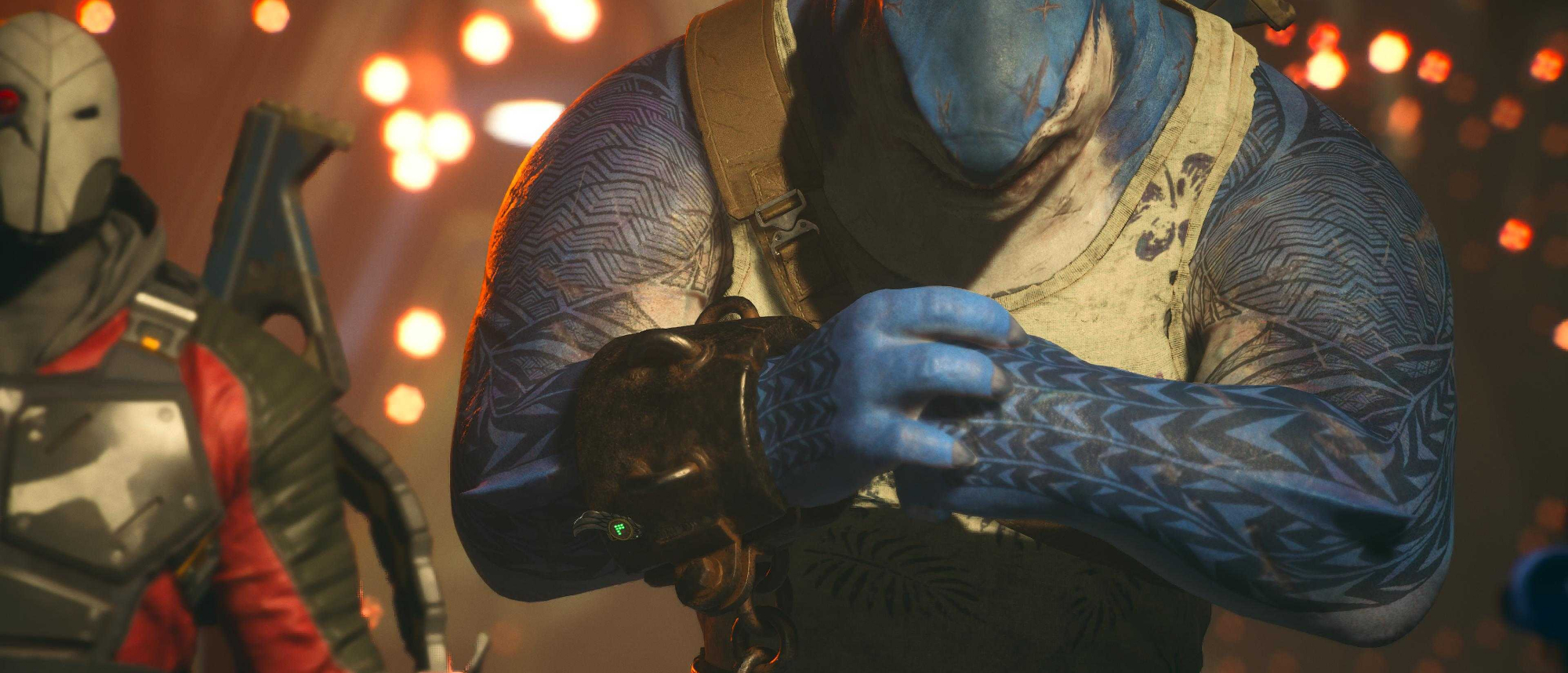TechRadar Verdict
Suicide Squad: Kill The Justice League is a superhero third-person shooter that has some interesting ideas and excellent writing, but is intent instead on subjecting players to death via live service nonsense.
Pros
- +
Great looking characters
- +
An innovative concept
- +
A well-written and genuinely entertaining story
Cons
- -
A confusing wealth of progression and gear systems
- -
Combat is dull
Why you can trust TechRadar
Platform reviewed: PS5
Available on: PS5, Xbox Series X|S, PC
Release date: February 2, 2024
Suicide Squad: Kill The Justice League has a confusing opening. The superhero shooter’s tutorial starts you in medias res, leaping around with a full suite of abilities. It’s disorientating, and I found myself wondering if I’d accidentally been thrown further into the game by some sort of glitch.
Finish that tutorial, which gives you the basics on how each character controls as you guide them through the half-destroyed city of Metropolis, and you’ll be sent back to the actual start of the game, with your antiheroes stuck in prison and recruited for a secret mission. Brainiac has taken control of Metropolis, and you guys are the advance team, set to pave the way for a shadowy government agency to roll in and save the day.
The kicker? Brainiac has subverted the Justice League itself. And your collection of unpowered dweebs is going to have to go toe to toe with the biggest and best in the DC Comics universe to try and survive.
What follows is several hours of live service nonsense, punctuated with flashes of brilliance that don’t quite justify the investment. The end result is that Suicide Squad: Kill The Justice League is a dissatisfying experience, but, not to get too “release the Ayer cut” about it, will also make you wish that developer Rocksteady Studios had just been able to make the game they clearly wanted to make, rather than the slightly messy game that exists.
Jumping the (King) Shark
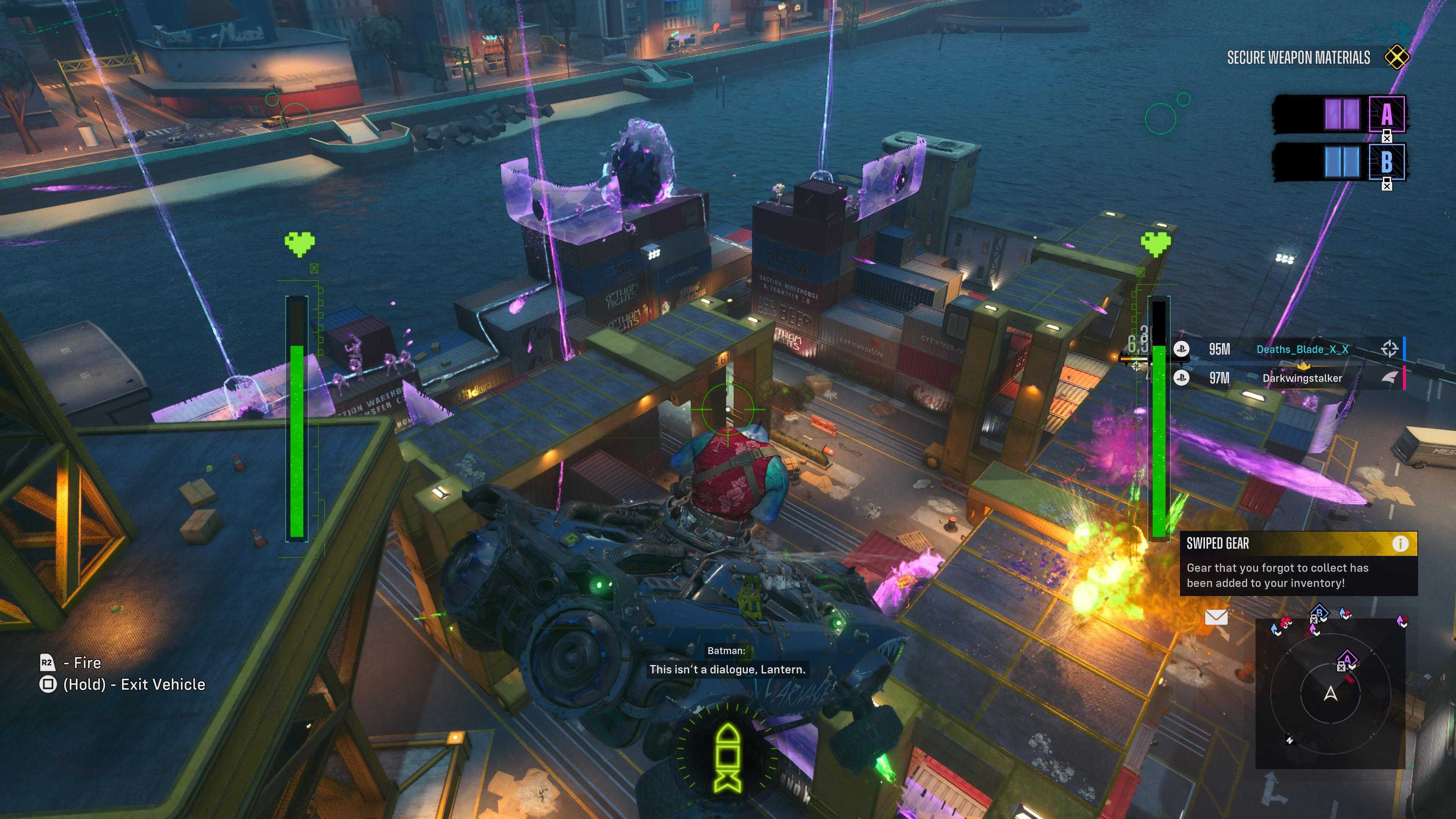
The primary problem with Suicide Squad: Kill The Justice League is that most of the time is spent in an undercooked but overstimulating open world. At several points while playing co-op with another player, neither of us was entirely sure whether what we were doing was a main mission, a side activity, or just battling some of the Brainiac’s uninspiring purple minions hanging out in the open world.
The shooting itself is fine, but if you’re playing any character that isn’t my beloved King Shark, movement feels frustrating. Every character that isn’t King Shark also has a tiny health pool too, making the chaotic fights that much harder to survive.
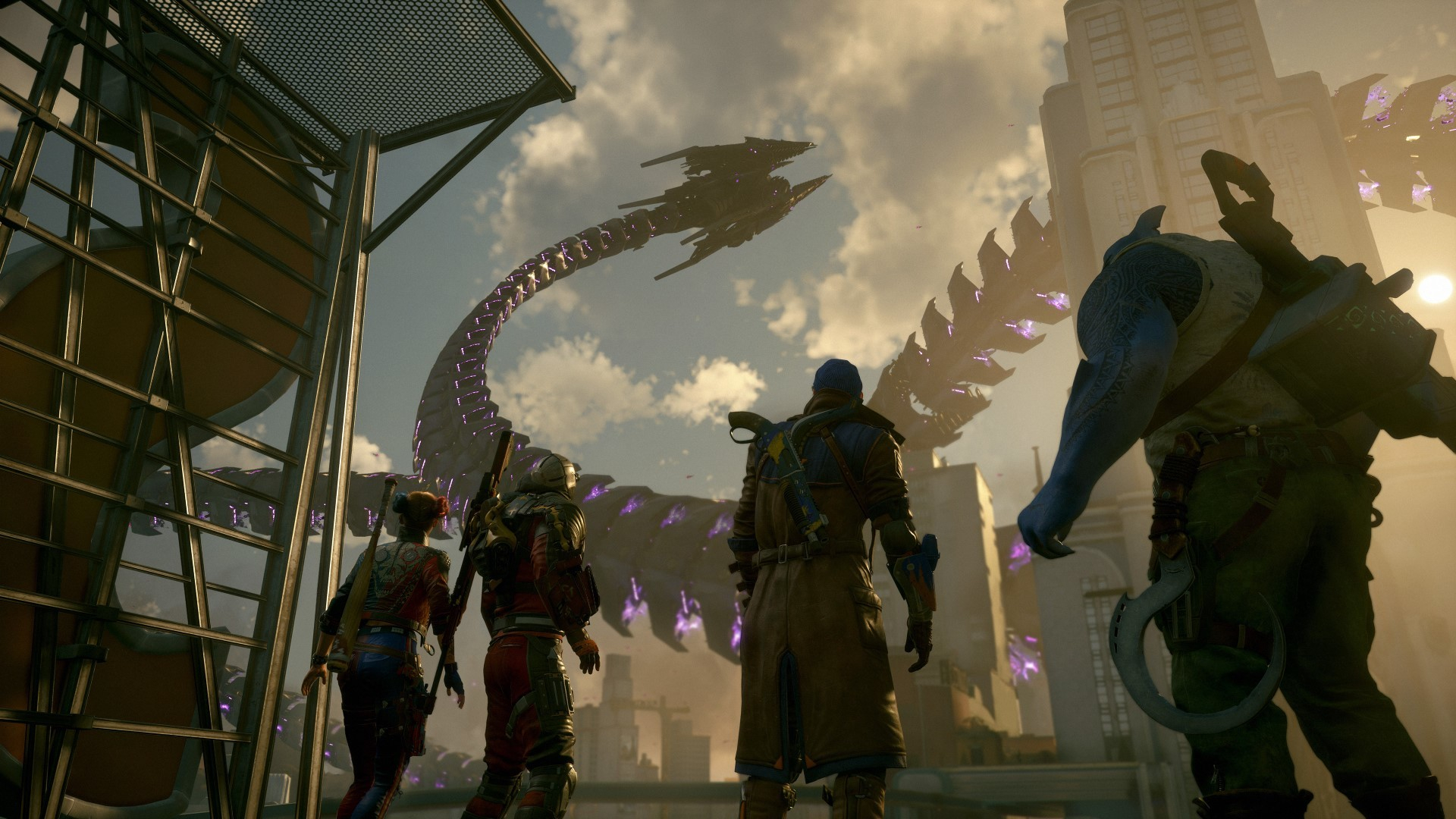
Your first encounter with Batman plays out like a horror segment. Each of your characters gets picked off one by one as Batman strikes from the shadows or tricks you. If this is how all of the criminals feel when they encounter The Dark Knight, I’m pro-crime now, poor guys.
The problem is that every character genuinely is completely different: the four heroes lift a collection of gadgets from the Justice League’s Hall of Justice headquarters in the prologue giving them different travel abilities. Harley can swing around using Batman’s suite of traversal tools, Captain Boomerang can teleport using some knockoff Flash tech, Deadshot has a jetpack and King Shark can… just jump really high. However, he can jump higher than the man with a literal jetpack, travel further than the person who can teleport, and just all around he has a much easier time getting from place to place than the other characters.
The characters also have their own strengths and weaknesses. Deadshot is a marksman, King Shark is happy leathering people with a pair of giant cleavers and a shotgun. There’s some variance in the game’s loot which is doled out after each mission and, like everything else in the game, is full to bursting with numbers that will overwhelm most players. However, there’s a good chance you’ll find a weapon class that works for you and just plug away with that.
In the storyline the characters also feel well-sketched out. King Shark gets a lot of the best lines, channeling James Gunn’s The Suicide Squad movie and just being wonderfully earnest even as the entire DC universe comes apart around him. The rest of the characters also get great lines (an early moment where Amanda Waller, wonderfully portrayed by Debra Wilson, declares that she’s the daddy now should get a Golden Joystick of some description), and the moment-to-moment beats are genuinely excellent, even if I’m not really into the rest of the story.
In blackest night
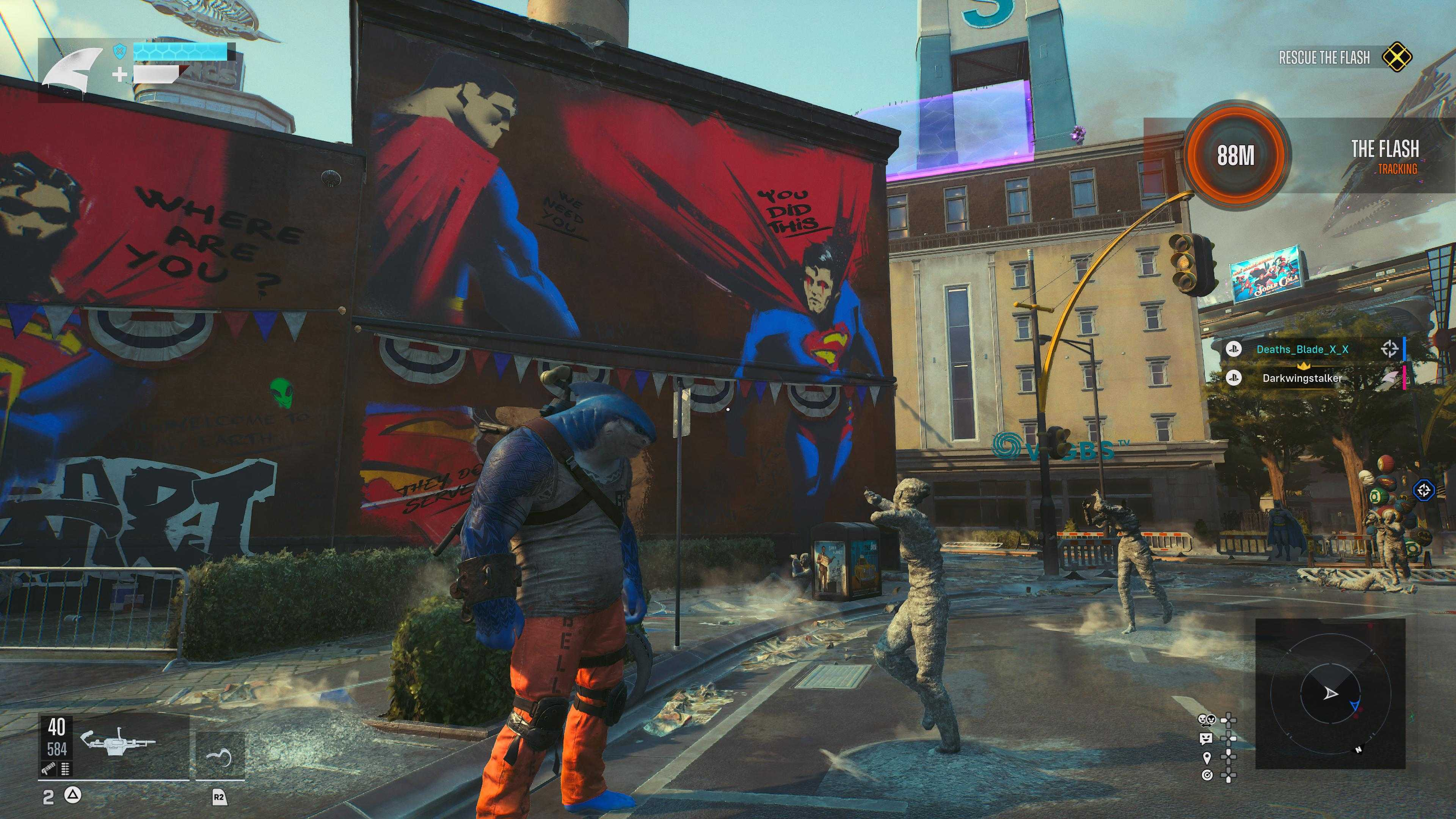
I wince a little at the somewhat complicated canon, as Rocksteady and Warner Bros. have both been clear that Suicide Squad: Kill The Justice League sits within the timeline established by Arkham Asylum and its sequels. This means that the Batman lots of us bought into in those games is the same Batman that’s here massacring the innocent people of Metropolis. It’s a bold choice, but one that leaves me feeling a little uneasy. I wouldn’t be surprised if a late story addition introduced as part of the game’s live service roadmap rolls things back a bit, but I also recognize it’s just that I liked the Arkham games so much it’s a shame to watch them do Batman dirty like this.
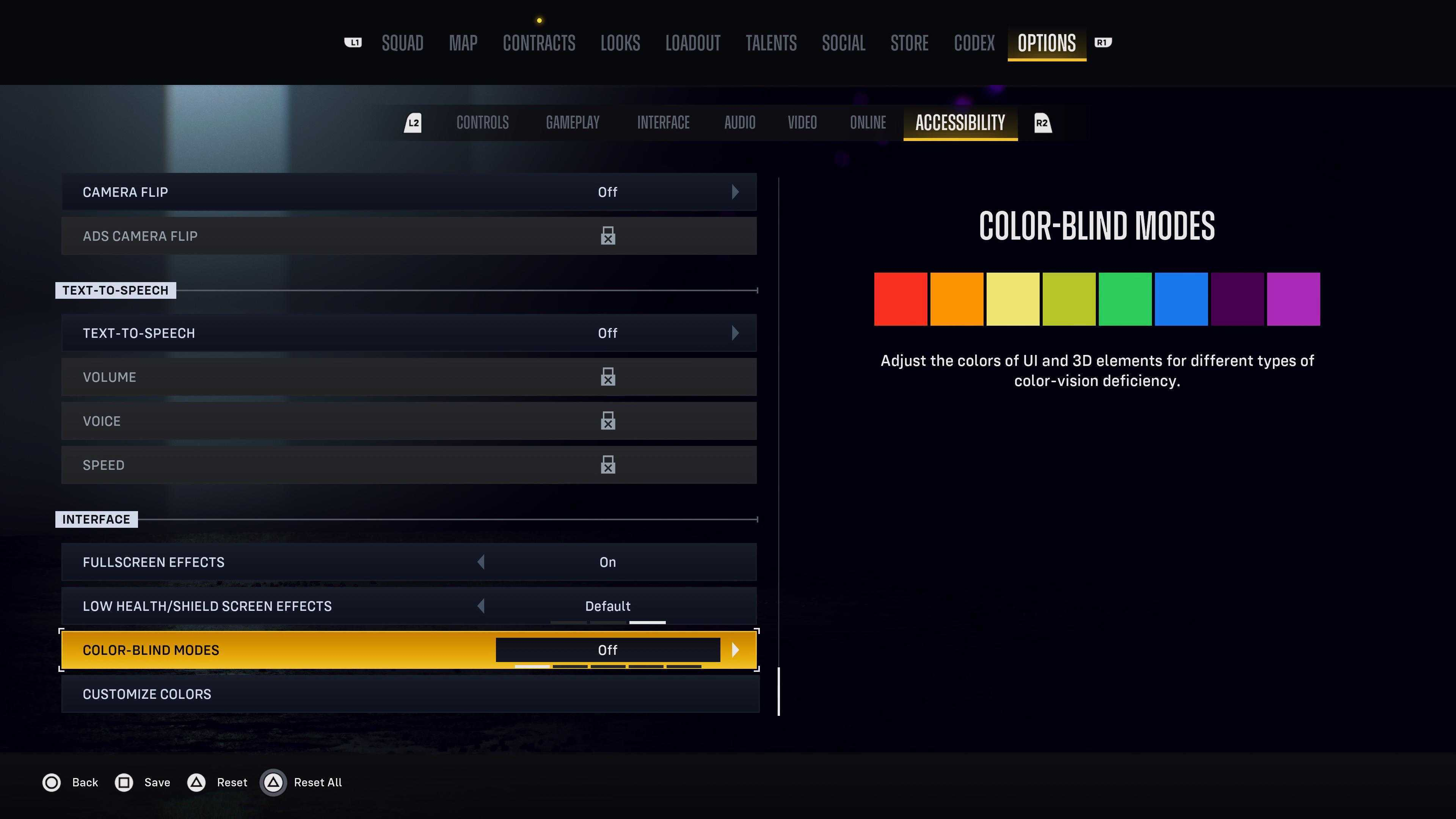
There’s a host of different controller options that include sensitivity adjustments, aim assists, input settings to allow you to auto-run, toggle aiming, and other tweaks. Three colour blind options and a custom option for you to tweak colours as you see fit and options to alter fullscreen effects make this a fairly comprehensive package on the graphics side, while detailed audio sliders allow you to alter things there too. Subtitles can be adjusted and there are text-to-speech options, too.
This is just me being a bit squeamish of characters that I have some affection for though, because this is the sort of superheroic deconstruction that we’ve seen with The Boys and even unsuccessfully in Jupiter’s Legacy Ascending. Here it’s done fairly well and the tentpole moments sing. An early encounter with Batman is legitimately terrifying, while seeing a lot of the heroes descend into unhinged madness is a treat with some inventive use of powers. However, outside of these moments, the game is done a disservice by the need to have a big open world filled with things to do. It feels like there are two different games squabbling here: the tightly scripted Suicide Squad; and the open-world live service Suicide Squad, and a lot of the friction comes from the games crashing into each other awkwardly.
You’re dragged from a tense situation where you try to remove the bombs jabbed into your neck and chucked into a quick section where you pilot a flying car around to try and blow up some of Brainiac’s crystals or something. Suicide Squad: Kill The Justice League is consistently overwhelming, whether that’s the on screen UI, the loot you’re constantly faffing with or the byzantine skill trees.
It’s exhausting and hard to recommend when the flashes of brilliance in the game are so well obscured by everything else. So, in a way Suicide Squad: Kill The Justice League’s disjointed opening is emblematic of the whole game: an overstimulating exercise in confusion that has solid ideas you’ll have to dive deep to find. Unfortunately, I’m not sure it’s worth the trouble.
If you're still searching for some thrilling games, check out the best multiplayer PC games as well as the best FPS games, which are available to play now.

Jake Tucker is the editor in chief of TechRadar Gaming and has worked at sites like NME, MCV, Trusted Reviews and many more. He collects vinyl, likes first-person shooters and turn-based tactics titles, but hates writing bios. Jake currently lives in London, and is bouncing around the city trying to eat at all of the nice restaurants.
